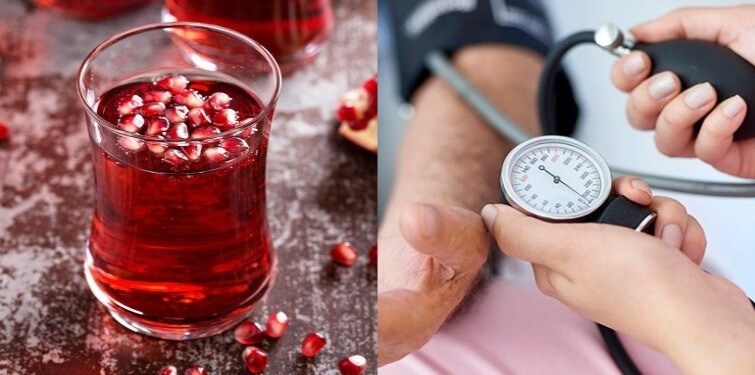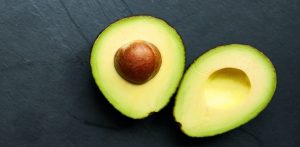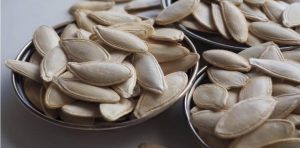Let’s start the article by providing a short and straight answer to the question asked in the title; Yes, drinking pomegranate juice can lower blood pressure.
Besides, consuming pomegranate juice on a regular basis can also help you maintain optimal blood pressure.
Who says pomegranate juice is good for lowering blood pressure or keeping it to a safe level? Well, rest assured this is not the author’s personal opinion!
Multiple scientific studies demonstrated that pomegranate juice has a blood pressure-lowering effect.
In addition to studies, medical doctors and board-certified nutrition specialists praise this healthy natural beverage for being beneficial for blood pressure.
Throughout the article, we are going to investigate some of these scientific studies and also quote medical experts who talked about the positive correlation between pomegranate juice and stable blood pressure.
So, please keep reading to find out how drinking pomegranate juice can be one of the natural ways to lower blood pressure.
High Blood Pressure
Since it is quite common, many people know what high blood pressure (hypertension) is.
As for how high blood pressure occurs, according to the Mayo Clinic; “Blood pressure is determined both by the amount of blood your heart pumps and the amount of resistance to blood flow in your arteries. The more blood your heart pumps and the narrower your arteries, the higher your blood pressure.” (1).
According to the Centers for Disease Control and Prevention; almost half of the adults (roughly 115 million) suffer from high blood pressure in the U.S.A. (2).
In addition, approximately 1.30 billion adults worldwide have high blood pressure (hypertension), as reported by WHO (3).
These numbers can easily reveal the extremely high prevalence of hypertension among adults around the world.
The problem is unless high blood pressure is controlled with certain treatment methods such as prescribed medications or certain lifestyle changes, it can lead to life-threatening conditions; heart attack, stroke, and kidney disease to name a few (4),(5),(6),(7),(8),(9).
The good news, on the other hand, is that you can manage your blood pressure, thus minimising the risk of developing these serious health conditions.
Although there are many ways to manage blood pressure, in most cases being physically active, eating healthy foods, and taking drugs regularly (if prescribed by your doctor) are the best ways to manage this common health condition (10),(11),(12).
Following a healthy diet is particularly important for keeping high blood pressure at bay (13),(14).
There are various foods and drinks suggested to lower blood pressure. However, since there are scientific studies that support the efficacy of pomegranate juice in regulating blood pressure, in this article we focus solely on this healthy beverage.
Nutrients in Pomegranate Juice
Before touching on the factors that make pomegranate juice effective for lowering blood pressure, it is important to mention some of the nutrients this healthy beverage contains.
This is because the blood pressure-lowering effect of pomegranate juice mostly comes from certain nutrients that exist in this healthy beverage.
Thanks to its rich nutrient content, pomegranate juice is linked to many health benefits such as cancer prevention, better memory, reducing inflammation, and of course blood pressure control.
What are these nutrients found in pomegranate juice? Since there are many let’s mention the most abundant of them.
Pomegranate juice is particularly rich in vitamin K, vitamin C, potassium, folate, manganese, and vitamin E (15).
It is also important to underline that pomegranate juice is loaded with antioxidants. According to MedicalNewsToday; pomegranate juice has more antioxidants than most other fruit juices (16).
It bears repeating; that some of these nutrients are the main reason why pomegranate juice is heavily associated with low blood pressure.
3 Reasons Pomegranate Juice is Good For Blood Pressure
In this section, we will be giving 3 scientific reasons why drinking pomegranate juice can be beneficial in terms of managing hypertension. Thereafter, we will be talking about the studies that demonstrated the potential impact of pomegranate juice in regulating blood pressure.
Note: to get the most benefits from pomegranate juice, including blood pressure benefits, make sure it doesn’t contain any added sugar.
1-) Potassium in Pomegranate Juice Can Lower Blood Pressure
Undoubtedly, potassium is one of, if not, the most important nutrients when it comes to managing high blood pressure.
The good news is that one cup of pomegranate juice can provide 533mg of potassium. That equates to around 15 per cent of daily potassium need (15),(17).
So, In what way is potassium beneficial for high blood pressure?
According to the American Heart Association; potassium reduces the effects of sodium in the body by helping it to get rid of excess sodium through urine (18).
It is also reported both by the American Heart Association and Harvard Medical School that potassium has the ability to ease the tension in the arteries, thereby, lowering blood pressure (18),(19).
Furthermore, various scientific studies also demonstrate the fact that potassium plays an important role in regulating blood pressure (20),(21),(22),(23),(24).
It bears repeating pomegranate juice is rather high in potassium! That means this healthy beverage can work wonders for lowering your high blood pressure.
Important note: Potassium can harm your body if you have kidney disease (25),(26).
2-) Folate in Pomegranate Juice Help Lower Blood Pressure
Folate is another nutrient that can help you manage your blood pressure, as studies and medical experts indicate.
Before touching on how it helps with hypertension, let’s look at how much folate pomegranate juice contains…
According to the U.S Department of Agriculture; one cup of pomegranate juice contains 59.8 mcg of folate, which equates to nearly 15% of the daily folate requirement for the human body (15),(27).
Now, we can answer the question ” how does folate – aka folic acid – help blood pressure?”.
Folic acid is also thought to help arteries relax, improve blood flow and thereby reduce the risk of high blood pressure, says Dr John P. Forman, assistant professor of medicine at Harvard Medical School and an associate physician in the Renal Division at Brigham and Women’s Hospital (28),(29).
According to a 2015 study – involving 20,000 Chinese adults with high blood pressure – researchers discovered that folic acid significantly reduces the risk of stroke in people with hypertension (30),(31).
Since pomegranate juice provides your body with a handsome amount of folate, this beverage may either prevent your developing hypertension or help you manage it better.
3-) Vitamin C in Pomegranate Juice May Lower Blood Pressure
We all know the fame of vitamin C for its various health benefits to the human body. These benefits can range from improving the immune system to protecting eye health (32),(33),(34).
In addition to these very well-known benefits; high doses of vitamin C may also reduce blood pressure, according to analysis reports as well as both human and rodent studies.
If this is the case, pomegranate juice can help you deal with hypertension. This is because a juice of a single pomegranate can provide your body with almost 50% of its daily vitamin C need (16),(35).
Scientists believe that vitamin C may enable the kidneys to remove more sodium as well as water, thus helping to relax the blood vessel walls, which in turn lowers blood pressure (36).
Other studies (both human and rodent) also suggest that vitamin C has the potential to reduce high blood pressure (37),(38),(39).
If vitamin C is effective for lowering high blood pressure, as scientists suggest, then you can consume this healthy juice to get plenty of this vitamin into your body and keep your blood pressure in a safe range.
Some Studies on Pomegranate Juice and Blood Pressure
Here are some of the studies that demonstrate the positive impact of pomegranate juice on blood pressure.
1-) Effects of Pomegranate Juice on Blood Pressure In Healthy Subjects
In a study (performed in 2012), 51 healthy adults (ranging from 30 to 50 years) took part (40).
To discover the potential effect of the juice on blood pressure participants were requested to consume 330 ml/ of pomegranate juice every day or control drink for a month.
Results showed that those who consumed the juice showed significant falls in systolic blood pressure, diastolic blood pressure and mean arterial pressure.
Researchers concluded that pomegranate juice supplementation can be good for blood pressure in the short term (40).
It is important to note that researchers explained the positive impact of pomegranate juice on blood pressure that they discovered in the study with the juice’s high antioxidant polyphenols content (40).
2-) Effects of Pomegranate Juice on Blood Pressure (2016 Study)
A systematic review and meta-analysis of randomized controlled trials done in 2016 discovered that drinking pomegranate juice may reduce both systolic and diastolic blood pressure (41),(42).
After the findings of the study, researchers noted that adding pomegranate juice into your diet can bring heart benefits (41),(42).
3-) The Effect of Pomegranate Extract on Blood Pressure
In 2017, researchers from Cambridge University aimed to investigate the effect of pomegranate extract on blood pressure (43).
For a total of 8 weeks, participants were given either pomegranate extract capsules or placebo capsules.
Results showed that the pomegranate extract capsule reduced diastolic blood pressure after 8 weeks. However, it is important to note that systolic blood pressure didn’t change enough to note (43).
Bear in mind that pomegranate juice contains most of the nutrients that exist in pomegranate extract. So, results can potentially be applied to pomegranate juice as well.
How Much Pomegranate Juice Enough To Lower Blood Pressure?
So, now we know that this natural juice has the potential to keep blood pressure at a safe level. The question is how much of this juice is enough to lower your blood pressure?
Well, there isn’t a precise amount that we know of due to a lack of research. Having said that, we know from some relevant studies that drinking one cup of pomegranate juice a day can be an effective way to lower blood pressure (40).
Conclusion
Throughout this long, comprehensive and informative article, we discussed whether or not pomegranate juice can lower blood pressure.
What we found through relevant medical studies and the explanation of scientists was that pomegranate juice can be a natural way to manage high blood pressure, a medical condition approximately 1.5 billion people suffer from worldwide (3).
Let’s repeat it again… Potassium, folate, vitamin c and of course antioxidants are the reasons why this sweet ruby-red fruit juice is associated with low blood pressure.
If you suffer from high blood pressure, what you eat or drink carries extreme importance. So, make sure you always follow a healthy diet, which may include pomegranate juice to manage hypertension.
Other foods that can help lower your blood pressure include pistachios, watermelon, citrus fruits, berries, kiwifruit, celery, tomatoes, and spinach.
Bear in mind that another food that may help you manage your blood pressure is pumpkin seeds, which are rich in potassium, magnesium and arginine (amino acid).
It is important to remind you that if you experience any symptoms of high blood pressure, for instance; stroke or heart attack, do not seek home remedies. Contact your health care provider right away (44).
Tarkan is an experienced health writer ( currently more than 600 articles ) and also the founder of this website namely www.neededforhealth.com. His expertise in health stems from in-depth medical research and knowledge which he obtained over the course of many years.
Tarkan enjoys sharing factual knowledge on health, psychology and nutrition. He always aims to deliver evidence-based recommendations, provide links to related scientific studies.





